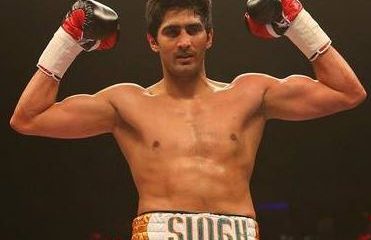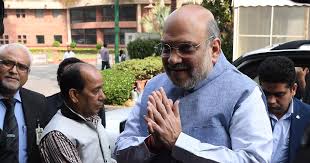Feature
Consumer court notice to Nestle on Rs.640-crore ‘Maggi’ suit

New Delhi: The apex consumer court on Monday served a notice on Nestle India over the government’s Rs.640-crore unfair trade practice class action suit related to Maggi noodles and fixed Sep 30 as the next date of hearing.
A bench of the National Consumer Disputes Redressal Commission, comprising Justice V.K. Jain and Justice B.C. Gupta, directed Nestle to respond to the notice by Sep 30 and allowed the government to send samples of Maggi noodles to an accredited laboratory for tests on lead content and MSG.
“The court has accepted to hear the case for unfair trade practice and misleading consumers through advertisements and packaging,” Additional Solicitor General Sanjay Jain said after the preliminary hearing.
During the hearing, the bench expressed doubt over the government’s cause of action, saying the Bombay High Court’s judgment in the matter had dealt with the issue of lead content.
It said since the high court had rejected the government’s current reports on lead content — for not being from an accredited laboratory — there was no report to prove the government’s contention that Nestle was selling hazardous products.
The government’s counsel, Sanjay Jain, replied that the government had approached the consumer forum on a “broader issue”. The central government was dealing with the question of whether Nestle had “all this while” sold a product which did not meet India’s food safety standards, he said.
Jain said later: “The court has sought fresh, sealed samples to be tested by accredited labs. Further course of action will be decided by the ministry (of consumer affairs).”
After a 30-minute hearing, the forum agreed to have Maggi samples tested at an accredited lab, and issued the notice to Nestle to respond to the government’s accusations.
The Department of Consumer Affairs had alleged that Nestle by its “unfair trade practices” vis a vis Maggi instant noodles, by selling “defective and hazardous products” has caused injury to millions of consumers, which called for this class action suit.
“It is now apparent that Maggi and its variants are neither healthy nor enjoyable. Quite the contrary, they are far from the quality and standard what even the opponent company had claimed them to be, while seeking approval,” the government had said in its petition.
The petition further said: “The department is keen to safeguard against companies selling defective foodstuff or other products in utter disregard of the existing laws.”
Last week, Nestle India had got a significant respite with the Bombay High Court lifting the ban on the sale of nine instant noodle brands and ordering fresh tests in three separate labs to ascertain that the products complied with the country’s food safety norms.
The conditional relief came following a petition filed by Nestle challenging the regulatory order of June 5 for the withdrawal and recall of nine variants of “Maggi Instant Noodles” and “Maggi Oats Masala Noodles with Tastemaker”.
The Food Safety and Standards Authority of India (FSSAI), the industry watchdog, had said in its ban order of June 5 that tests conducted on a batch of Maggi were found to contain more-than-permissible levels of lead and high quantities of mono-sodium glutamate (MSG).
Entertainment
Meghalaya Reserves Legalized Gambling and Sports Betting for Tourists

The State Scores Extra High on Gaming-Friendly Industry Index
Meghalaya scored 92.85 out of 100 possible points in a Gaming Industry Index and proved to be India’s most gaming-friendly state following its recent profound legislation changes over the field allowing land-based and online gaming, including games of chance, under a licensing regime.
The index by the UK India Business Council (UKIBC) uses a scale of 0 to 100 to measure the level of legalisation on gambling and betting achieved by a state based on the scores over a set of seven different games – lottery, horse racing, betting on sports, poker, rummy, casino and fantasy sports
Starting from February last year, Meghalaya became the third state in India’s northeast to legalise gambling and betting after Sikkim and Nagaland. After consultations with the UKIBC, the state proceeded with the adoption of the Meghalaya Regulation of Gaming Act, 2021 and the nullification of the Meghalaya Prevention of Gambling Act, 1970. Subsequently in December, the Meghalaya Regulation of Gaming Rules, 2021 were notified and came into force.
All for the Tourists
The move to legalise and license various forms of offline and online betting and gambling in Meghalaya is aimed at boosting tourism and creating jobs, and altogether raising taxation revenues for the northeastern state. At the same time, the opportunities to bet and gamble legally will be reserved only for tourists and visitors.
“We came out with a Gaming Act and subsequently framed the Regulation of Gaming Rules, 2021. The government will accordingly issue licenses to operate games of skill and chance, both online and offline,” said James P. K. Sangma, Meghalaya State Law and Taxation Minister speaking in the capital city of Shillong. “But the legalized gambling and gaming will only be for tourists and not residents of Meghalaya,” he continued.
To be allowed to play, tourists and people visiting the state for work or business purposes will have to prove their non-resident status by presenting appropriate documents, in a process similar to a bank KYC (Know Your Customer) procedure.
Meghalaya Reaches Out to a Vast Market
With 140 millions of people in India estimated to bet regularly on sports, and a total of 370 million desi bettors around prominent sporting events, as per data from one of the latest reports by Esse N Videri, Meghalaya is set to reach out and take a piece of a vast market.
Estimates on the financial value of India’s sports betting market, combined across all types of offline channels and online sports and cricket predictions and betting platforms, speak about amounts between $130 and $150 billion (roughly between ₹9.7 and ₹11.5 lakh crore).
Andhra Pradesh, Telangana and Delhi are shown to deliver the highest number of bettors and Meghalaya can count on substantial tourists flow from their betting circles. The sports betting communities of Karnataka, Maharashtra, Uttar Pradesh and Haryana are also not to be underestimated.
Among the sports, cricket is most popular, registering 68 percent of the total bet count analyzed by Esse N Videri. Football takes second position with 11 percent of the bets, followed by betting on FIFA at 7 percent and on eCricket at 5 percent. The last position in the Top 5 of popular sports for betting in India is taken by tennis with 3 percent of the bet count.
Local Citizens will Still have Their Teer Betting
Meghalaya residents will still be permitted to participate in teer betting over arrow-shooting results. Teer is a traditional method of gambling, somewhat similar to a lottery draw, and held under the rules of the Meghalaya Regulation of the Game of Arrow Shooting and the Sale of Teer Tickets Act, 2018.
Teer includes bettors wagering on the number of arrows that reach the target which is placed about 50 meters away from a team of 20 archers positioned in a semicircle.
The archers shoot volleys of arrows at the target for ten minutes, and players place their bets choosing a number between 0 and 99 trying to guess the last two digits of the number of arrows that successfully pierce the target.
If, for example, the number of hits is 256, anyone who has bet on 56 wins an amount eight times bigger than their wager.























